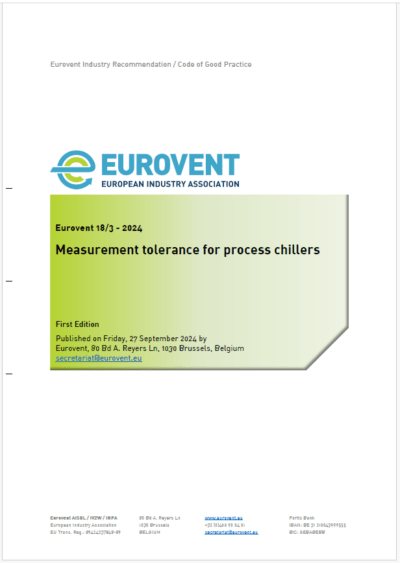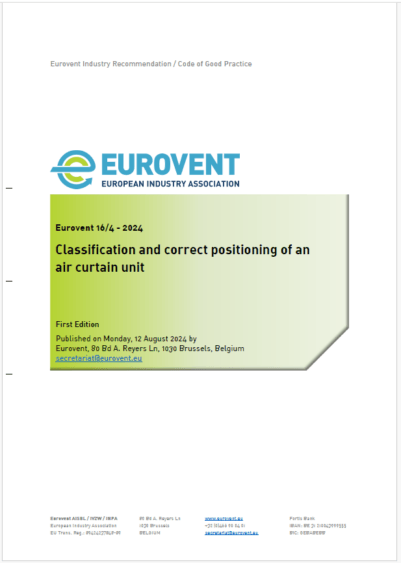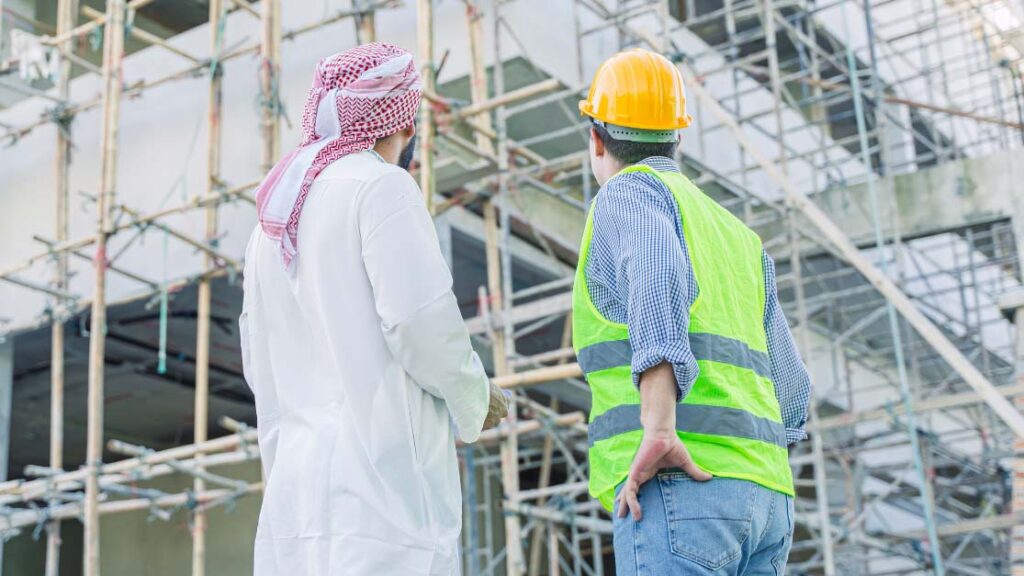Following the launch of the Academy, Eurovent Middle East looks at the critical role the initiative plays in contributing to broader sustainability targets from the perspective of esteemed media organisations’ coverage of the vital and ever-evolving topic.
On 03 October 2023, Eurovent Middle East launched its HVACR Leadership Academy in a press conference attended by members, partners, and esteemed media representatives. This marked a new milestone within the Association’s tireless efforts to implement activities to support the professional development of HVACR Technicians and Engineers, considered a critical missing link between technology and energy savings in the fight for lower greenhouse gas emissions.
The main objective of the Academy is to offer certified training courses, as well as knowledge development programmes for engineers, technicians, and other HVACR professionals, to increase market understanding of products, technologies, standards, and best practices.
Addressing gaps in the market
 In an interview published by Technical Review Middle East on the occasion of the launch, Markus Lattner, Managing Director, Eurovent Middle East, discussed the gaps in employee skills that became the catalyst for this initiative. “We see engineers who work on outdated standards and technicians who never received training on HVACR installations,” he said. “The issues are manifold in their root causes and effects, but all have the effect that we lose a considerable amount of energy due to substandard designs, installations, and operations. The shortage of adequately trained technicians is not only causing operational inefficiencies but also jeopardises the safety and well-being of stakeholders involved in building operations, considering the prevalence of outdated HVAC systems in many buildings.”
In an interview published by Technical Review Middle East on the occasion of the launch, Markus Lattner, Managing Director, Eurovent Middle East, discussed the gaps in employee skills that became the catalyst for this initiative. “We see engineers who work on outdated standards and technicians who never received training on HVACR installations,” he said. “The issues are manifold in their root causes and effects, but all have the effect that we lose a considerable amount of energy due to substandard designs, installations, and operations. The shortage of adequately trained technicians is not only causing operational inefficiencies but also jeopardises the safety and well-being of stakeholders involved in building operations, considering the prevalence of outdated HVAC systems in many buildings.”
He added that efforts should be directed toward ensuring formal technical education is accessible to existing technicians, particularly the underpaid blue-collar workers. “These technicians, often expatriates, possess valuable hands-on experience but need support to gain more theoretical knowledge,” he pointed out. “Introducing formal education tailored to their needs could unlock their potential in a way that benefits the individuals and the industry.”
Lattner further highlighted the importance of efficient cooling and its impact on various aspects of society in an article for FM Middle East. One of the arguments within the published article is that beyond the initial investment, the maintenance aspect of cooling systems holds significant importance. “While maintenance agreements between tenants and landlords vary, it is evident that older and less efficient cooling systems require more frequent repairs to maintain optimal functioning. Over time, these repairs accumulate into substantial costs,” he said. “This financial strain is particularly felt by residents who bear the brunt of smaller repair expenses. Upgrading to new and high-quality cooling systems can alleviate this burden, offering long-term savings in terms of reduced maintenance costs.”
The power of partnerships
To amplify the impact of the initiative and further ensure the calibre of infrastructure, Eurovent Middle East signed a cooperation agreement with the Italian training centre Centro Studi Galileo (CSG). Since the 1970s, CSG has been conducting training in Europe, the USA, Africa, and the Middle East and is accredited to certify HVACR technicians under the EU F-Gas certification and the REAL Alternatives programme in cooperation with the consortium and the European Association of RAC contractors AREA.
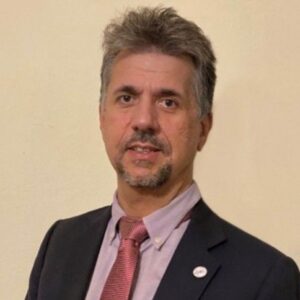
During the Press Conference, Zawya Projects interviewed Marco Buoni, Managing Director of CSG, who underscored the risks posed by the leakage of refrigerants, noting that they have higher Global Warming Potential (GWP) compared to CO2 emissions. In the published article, Buono cited that each kg of leaked refrigerant emits more than the equivalent of 2.000 kg of carbon dioxide (CO2) into the atmosphere, according to the Environmental Protection Agency (EPA). Thus, he said, an average-sized supermarket’s air conditioning system consumes approximately 100 kg of refrigerants annually. A leakage rate of 10 per cent means the release of at least 10 kg of refrigerants into the atmosphere. “This calls for implementing F-gas regulation, which restricts the use of refrigerants with a GWP value of more than 2.500. This includes the R-404A refrigerant used in refrigeration dryers,” said Buoni. The F-gas regulation requires checking for refrigerant leaks and periodic checking of the system. It also stipulates mandatory certification and training of technicians. However, he said that except for Bahrain, the regulation has yet to be implemented elsewhere in the Middle East.
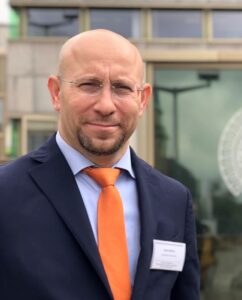
Zawya’s report also highlighted the insights of another critical partner in the Academy, Dr. Iyad Al-Attar, an independent consultant specialising in Indoor Air Quality and Air Filtration and a lecturer at several highly renowned universities and institutes, who spoke on the benefits of better maintenance in terms of building occupants’ health and safety. “IAQ measurement systems should be mandatory, as air quality should be by design and not by demand,” he said. “Installing air quality measuring systems should be compulsory for schools and public buildings.” He underlined that air quality should be integral to discussions on heating, ventilation and air conditioning system selection and human occupancy of new buildings. “Air filtration is now available at a lower energy usage so that I can have high efficiency at a much lower energy usage than five, ten and 20 years ago. So we have what it takes. What remains is to position what we possess regarding technologies and innovation.”
In support of national targets

The development of the academy also has far-reaching implications for government and society as a whole. This was further highlighted by Tariq Al-Ghussein, President of Eurovent Middle East, during an interview with Al Bayan, a leading Arabic Daily Newspaper, where he said: “Efforts to improve energy efficiency, to reduce the impact of climate change, have become commonplace at all levels of government, and the heating, ventilation and air conditioning sector in turn is witnessing large investments, and the shift towards using alternative refrigerants has become more urgent.” He added that all of these developments rely heavily on HVAC professionals trained in new technologies, and without investing in these capabilities, we cannot achieve the sustainability goals set by national governments.
Indeed, the initiative comes at a critical time as the UAE has set stricter emissions, announcing an increase in its target of 31% reduction to 40% by 2030, ahead of the country’s hosting COP28 from 30 November 2023 to 12 December 2023. In an article authored by Lattner published in MEP Middle East, he highlighted how COP 28 was poised to be a pivotal moment in the global fight against climate change, offering nations an opportunity to unite and reaffirm their commitments to reducing greenhouse gas emissions and promoting sustainability. He pointed out that the UAE recognises the critical role of addressing the cooling sector and that there is little need to emphasise the urgency of these discussions, mainly when the World Health Organization attributes 250.000 annual deaths to climate change. “The HVACR sector’s role in achieving these benchmarks is widely acknowledged”, he said. “This sector can showcase significant savings through sustainable solutions, particularly crucial in the Middle East, where cooling and refrigeration are essential. While clean energy supply remains a primary focus, discussions must shift to energy-conscious consumption and enabling strategies. As COP 28 approaches, the UAE emphasises efficient cooling practices and maintenance as a guiding principle for sustainable progress.”
The Climate Group has noted that 40% of global greenhouse gas emissions come from buildings. In the UAE, up to 70% of buildings’ energy consumption goes to cooling and ventilation, leading to an overall consumption of more than 50% for the entire nation. Eurovent Middle East estimates that 25% of energy savings can be achieved through simple preventive maintenance, 15% through better installation, and 20% through better operations of HVACR equipment.
In a conversation with Climate Control Middle East as a guest on the podcast, “Talking HVACR”, Lattner further highlighted the undeniable role of education. “Technology is evolving,” he said, “and if we do not have people capable of handling technology correctly, these talks about energy conservation are in vain. Any client who needs an HVAC system, whether a fixed commercial operator or private household, should have the peace of mind that the money they pay for maintenance will ensure a well running system, operating at the minimum energy cost possible. For that, you need skilled people. And if there are no requirements in the market for qualification, you can be in for a surprise. As a non-profit, we cannot instruct the market. Still, the mandate of investing in qualified technicians and maintenance personnel can come from the customers themselves, and, perhaps, the government to impose a minimum qualification requirement for certain jobs.”











